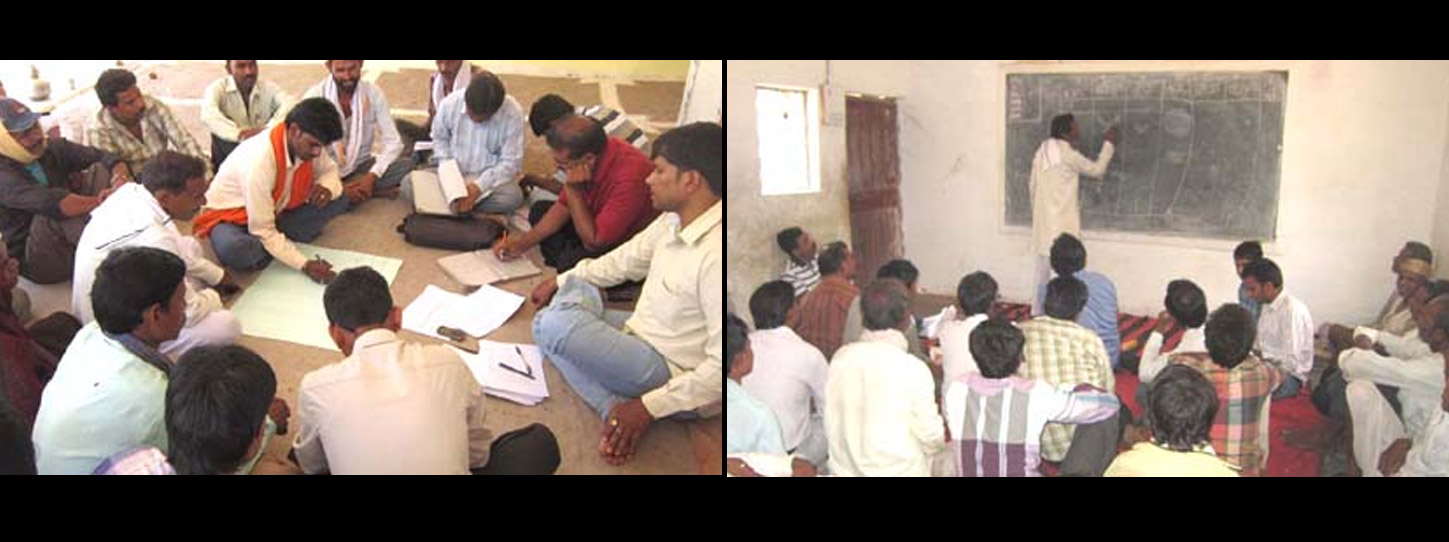
Traditional agriculture that propped up food systems across the country took a retrogressive turn with the advent of green revolution. Shortsighted campaigns of various governments bulldozed traditional farming systems to the brink of extinction. The aggressive agenda of popularizing ‘modern agriculture’ resulted into the heavy dependence of farmers on market. The rich traditional agriculture knowledge of communities was eventually superimposed by modern agriculture practices which failed on the parameters of local viability in spite of achieving higher productivity. By the time the dangerous ramifications of green revolution shook the world out of its slumber, indigenous agriculture system had already lost its footing. Frequent failings of modern farming and decline of traditional agriculture knowledge put the smallholder farmers in a fix – whether to keep faith on the costly and loss-prone modern farming system or to return to traditional agriculture system, which has nearly drifted out of prevalence.

Farmers recording crop vulnerabilities in Sagar
Caritas India, under its Strengthening Adaptive Farming in Bangladesh, India and Nepal (SAFBIN) programme conducted an intensive community-based innovation scouting and vulnerability analysis for recording community’s perceptions about the crop vulnerabilities and traditional agriculture practices. The exercise, which was conducted in 30 villages in Sagar, Satna and Mandla districts, had the objective of rediscovering the traditional practices that have the potential to offer locally sustainable and feasible solutions to the agriculture challenges faced by smallholder farmers of rain-fed areas. SAFBIN envisages building farmers’ resilience to the vagaries of climate change and helping them recoup agriculture sovereignty that the much-celebrated Green Revolution had robbed them of.
Apart from enabling communities to appreciate its own treasure of agriculture knowledge, the process had the purpose of identifying agriculture practices that could be trialed for checking their suitability to the present agro-climatic conditions. SAFBIN, an On Farm Agriculture Research (OFAR) programme, conducts participatory agriculture research to develop candidate models that are robust, resilient and locally viable. The candidate models are developed by farmers by conducting trials which combine the good practices of traditional and modern farming systems. The methodology of identifying the vulnerability and traditional innovations was grounded on community’s reflection process and analysis. Communities were helped to understand the effects of climate change on their crops especially pest attacks and rapidly-reducing crop productivity. The process helped farmers understand the interactivity of climate, crop growth, soil characteristics and farm inputs.

A community reflection process in progress
Smallholder farmers, this year, have decided to conduct trials on three food crops i.e., paddy, black gram and Kodo millet. Hence, the community’s analysis of vulnerability and traditional remedial practices were specific to these crops. Community’s prepared crop calendar of each of these crops and listed down the vulnerabilities these crops face in various critical stages of plant growth. During the process, farmers identified several vulnerabilities which have been seriously affecting their crops and destabilizing food security of villages.
While adhering to the guiding principles of Farmers’ Collective Led Approach (FCLA), SAFBIN team facilitated the interaction thereby creating a community-based platform for reflection and analysis. One of the important insights of the community analysis was the keen interest that was evinced by the community in the process. Farmers’ satisfaction and happiness in sharing about their rich traditional knowledge which is capable of offering solutions to most of their agriculture challenges was no less remarkable either.
SAFBIN India had conducted similar exercise last year as a preparatory step of Kharif trial. The process contributed to the rediscovery of 183 traditional practices/innovations in the areas of pest management, soil health management, moisture management, storage systems and seed development and preservation.
